Healthy Ageing Innovation Prize


We are pleased to announce that the WSIS Forum Special Track on ICTs and Older Persons will continue to hold the WSIS Healthy Ageing Innovation Prize, focused on ICTs that specifically address the needs of people 60+ to achieve and sustain an active and engaged life as they age. Following the success achieved in the first ever Healthy Ageing Innovation Prize organized as part of the WSIS Forum 2021, the WSIS Forum 2022 together with the Global Coalition on Aging (GCOA) and other interested stakeholders are calling for submissions starting from 1 December 2021. The WSIS Healthy Ageing Innovation Prize is an exceptional international recognition of WSIS Stakeholders as leaders for their excellence in supporting innovation that brings sustainable solutions for the ever-increasing global population of older people.
Given the identification and release of the UN/WHO Decade of Healthy Ageing’s Action Areas, we believe it is especially timely to encourage innovators, in the public and private sector, to connect their submissions to this seminal global effort. Specifically, to address how their products/services/ platforms support and impact one of the following particular categories that impact the ability of Older Persons to function as they age:
-
Alzheimer’s and Cognitive Decline: This is a disease that ravages this demographic, yet has the potential to be impacted and ameliorated with the application of ICT’s. Encouraging innovation in this area within living environments, municipal management, and for personal use supports individuals and caregivers in their need for independence within the scope of their capabilities.
-
Frailty: Nutrition and movement are the basic tools for building and maintaining stronger bone health, which is a vital element of healthy ageing. ICT’s have a role in supporting these important tools and bringing them to a wider audience and potentially driving their success.
-
Immunizations: Covid 19 has shined a spotlight on the importance of adult immunizations for Older Persons. How are ICT’s bringing an increased awareness, and an accelerated activation to the range of immunizations that need to be provided to this demographic to support their healthy ageing.
-
Transportation and Mobility: To be independent and to move about in the world provides an older person with the opportunity to continue relationships, work and fitness as well as to be able to access care if necessary – the non-medical elements that enable healthy ageing. ICT’s play an important role in developing the solutions that drive this need forward.
-
Elder Caregiving: At the core of healthy ageing is robust and innovative caregiving models that incorporate personal touch with technology. Included in scope for this prize will be models covering both the health and financial sides of elder caregiving support.
All are encouraged to submit ICT projects that they believe should be recognized and promoted, even if they do not hold ownership, however, owners and operators must be identified and consulted. No more than one project from the same entity is allowed to be submitted. Stakeholders are invited to consult the rules for project submission and nomination criteria at the WSIS Forum 2022 Special Track on ICTs and Older Persons. These projects will be judged on the basis of the impact that they have had on supporting healthy ageing for Older Persons. All projects must be viable, in operation, and must be verifiable. Prizes cannot be given to projects that are inactive, those that have closed operations or for which we cannot verify. Deadline for submissions: 1 March 2022 1 April 2022.
Submissions will be made through the official submission form, with five nominees selected in each of the 5 categories by a panel of international judges. The winner, and finalists, will be announced during the WSIS Forum 2022. The winner and finalist will be offered a cash prize as well as recognition at the WSIS Forum. All valid submissions received before 21 January will also be considered for the WSIS Prizes 2022 global contest which awards best ICT projects advancing Sustainable Development and achieving SDGs.
Phases of the Contest
-
1 December 2021 –
1 April 2022 Submission phase
Deadline extended to 1 April 2022
Deadline for last submission: 23:00 Geneva time
-
1 April – 15 April 2022
Selection phase
Review of submitted projects that will result with ten finalists representing each of the defined categories. Selection will be determined by an Expert Panel.
-
17 May 2022
Announcement of the finalists
Announcement of the finalists and pitching of their ICT solutions to the public during the ICT and Older Person’s Special Track at WSIS Forum 2022 on 17 May, World Telecommunications Day (WTISD). This year’s theme of WTISD is Digital Technologies for Older Persons and Healthy Ageing.
-
30 May – 3 June 2022
Announcement of the winner
Announcement of the winner to the public during the ICT and Older Person’s High-Level Dialogue at final week of the WSIS Forum 2022.
Panel of Judges
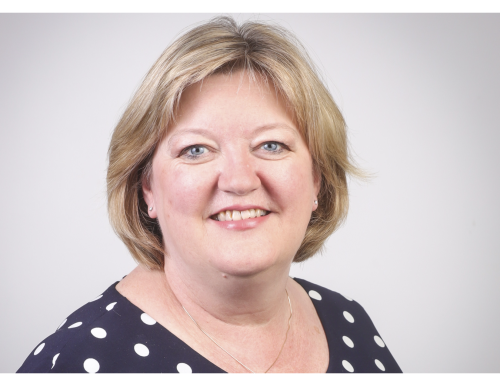
Diane is a very experienced public affairs professional whose current role is Senior Director Vaccines Public Affairs in the Global Policy & Public Affairs team at Pfizer. Diane’s responsibilities include the adult vaccines portfolio, which includes respiratory diseases such as COVID-19, Pneumococcal Pneumonia, RSV as well as the meningococcal portfolio which has vaccines across the life course. In addition, Diane co-chairs the IFPMA Task Force for Life Course Immunisation. Diane represents public affairs on the International Developed Markets Vaccines Leadership Team.
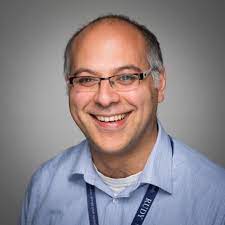
Kassim Javaid studied medicine at Charing Cross and Westminster Medical School and did his house jobs in London. He then finished a three-year SHO rotation in medicine at Southampton General Hospital followed by 8 months as a registrar before starting at the MRC Environmental Epidemiology Unit in October 2000.
His research areas are in epidemiology and adult metabolic bone disease focusing vitamin D, osteoporosis, secondary fracture prevention and rare bone diseases.
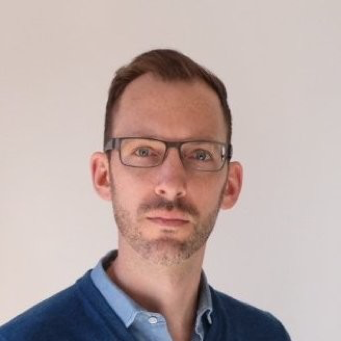
Globally experienced, energetic, results driven leader with exceptional organizational, communication, and analytical skills. Focus and experience in Healthcare industry, leading efforts in New Business Development, transformational change, program management, analytics, information technology and multidisciplinary programs.
Successful track record in creating, implementing and leading teams and solutions to transform Life Science companies, whether through new commercial approaches with customers, new business development, or enhanced internal business process management. Proven ability to guide teams through complex situations accompanied by strong business understanding across the European and United States healthcare environment.
Responsible for leading Accenture's Life Science go-to-market and analytics efforts in the Northeast USA and delivering high value to clients leveraging analytics across their business.
Specialties: Healthcare Solutions, Program Management, Transformational Change Management, New Business Development, Go to Market, B2B sales and marketing.

Dr. Manasa is a Stanford trained translational research specialist specializing in infectious diseases diagnostics and molecular epidemiology. His research work has mostly been on molecular diagnostics and pathogen genomics. He currently has active projects on HIV, Hepatitis viruses, respiratory viruses (including SAR-CoV-2) and HPV.
He has more than 15 years international experience in molecular diagnostics and HIV drug resistance. His interests are leveraging advances in genomic technologies to provide innovative healthcare solutions in resource-limited settings. He has postdoctoral training from Stanford University in California, USA, and University of KwaZulu-Natal in Durban South Africa. He received postgraduate training fellowships from the Swiss-South African joint research program and the NIH’s Fogarty Centre as well as research and training grants from the NIH, Gilead sciences and Abbott Diagnostics. He is currently principal investigator/program director for two training grants for infectious diseases genomics and non-communicable diseases research. In addition, he leads a multidisciplinary virus discovery and molecular epidemiology research program. He has 60 peer reviewed publications in various scientific journals.
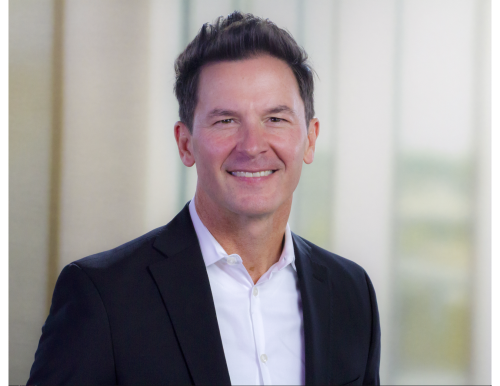
Chad Brough is the Vice President of Healthcare Transformation at Home Instead, the world’s largest home care company headquartered in Omaha, Nebraska. In his role, Chad leads the comprehensive healthcare transformation strategy and roadmap for Home Instead’s global network that advances home care as a critical part of the healthcare ecosystem. Chad is responsible for expanding, integrating and overseeing the clinical care aspects of Home Instead’s service offerings. Chad’s thought leadership focuses on moving healthcare to the home, population health outcomes, and expanding funding sources through payor innovation and policy reform that enables aging adults to successfully age in place.
Beginning his healthcare leadership career 30 years ago, Chad has led transformational change across the healthcare continuum, from community hospitals, large health systems, academic medical centers and home care. His expertise focuses on transforming strategic plans into operational initiatives for multi-site, complex service delivery models. Chad stands for healthcare that people value, desire and deserve.
During his career, Chad has served on the Malcolm Baldrige Board of Examiners. Currently, Chad serves on the World Economic Forum’s Edison Alliance, the Global Coalition on Aging’s Digital Health Advisory Council and Adult Vaccine Advisory Council.
Chad earned a BA in Business Administration from Hanover College and his MBA from Indiana University.
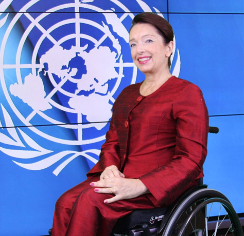
Ms. Daniela Bas, of Italian nationality, is the Director of the Division for Inclusive Social Development at the United Nations Department of Economic and Social Affairs since May 2011. Political scientist with a major in International Politics, she graduated Magna Cum Laude with a dissertation on “The elimination of architectural barriers and the employment of people with physical disabilities”. She is also a certified journalist and worked for the major press, Radio, and Television networks and is also a certified multicultural/life coach. Ms. Bas’s interest has always been people-centred in the various activities, associations, and professional roles she has held. In addition to her work at the United Nations from 1986 to 1995, she held managerial roles until 2000 in the private sector in Italy.
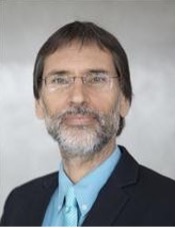
Dr Anshu Banerjee is the Senior Advisor for WHO's Department of Reproductive Health and Research including the UNDP/UNFPA/UNICEF/WHO/World Bank Special Programme of Research, Development and Research Training in Human Reproduction (HRP). He joined the Department in August 2015. In addition to his role as Senior Advisor to the Department, Dr Banerjee will lead WHO's work to operationalize the UN Secretary General's Global Strategy for Women’s, Children’s and Adolescents’ Health - a road map to end all preventable deaths of women, children and adolescents by 2030 and improve their health. Dr Banerjee will also work on the new Global Financing Facility (GFF) in support of the strategy.
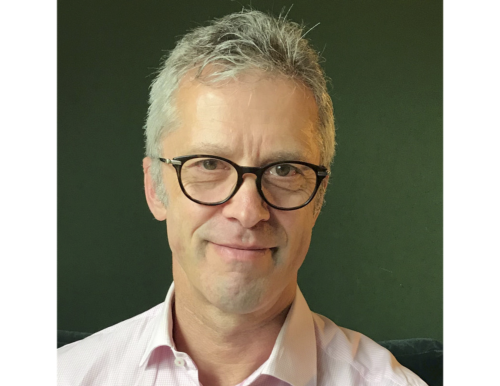
Professor Ian Philp is the founder of Age Care Technologies (ACT) www.agecaretechnologies.org. ACT is the winner of the 2021 United Nations WSIS prize for innovation in healthy ageing for our potential to add 100 million quality life years for older people and reduce global costs of long-term care by $45 trillion.
Professor Philp is an advisor to the World Health Organisation in person-centred care for older people. He holds a Doctorate in Medicine from the University of Edinburgh and was a practicing physician for 35 years in the UK National Health Service, spending eight years an Executive Medical Director.
As Professor of Health Care for Older People at the University of Sheffield, he led teams which won the UK hospital team of the year in the care of older people and the Queen’s Anniversary Prize for Higher Education for research into improving the quality of life of older people.
From 2000-8, he was the National Clinical Director for Older People in England, leading the development and implementation of the National Service Framework for Older People, campaigning to ensure respect for dignity in care and eliminate age discrimination, leading national strategies for intermediate care, stroke, dementia and the prevention of falls and fractures.
Professor Philp was awarded a CBE in the Queen’s birthday honours in 2009 in recognition of his work to improve the lives of older people.

Ms. Ursula Wynhoven is an international lawyer with 24 years’ experience. She joined the ITU in 2017 as its Representative to the UN. The ITU is the UN’s specialized agency for information & communication technologies with the mission to connect the world. Ursula leads UN relations and represents the agency and its Secretary-General at the UN in NY. She heads the ITU’s UN Liaison Office and works at the intersection of technology and development, promoting digital inclusion and the use of ICTs for sustainable development. Previously, Ursula spent 14 years with the UN Global Compact, the UN’s corporate sustainability initiative. Her last position was Chief, Social Sustainability, Governance & Legal and member of the Executive Committee. Ursula led the UNGC's work on human rights & decent work, gender equality, poverty & inequality, peace, anti-corruption & the rule of law.
Ursula also led legal affairs and oversaw policy development & implementation of the UNGC’s integrity measures. Ursula began working with the UNGC in 2002 and played an active role in helping to grow the initiative to more than 13,000 signatories in more than 160 countries with a full roster of corporate sustainability workstreams. Ursula's tenure included a 6-month loan as Senior Advisor, Business & Human Rights to the UN’s Human Rights Office. Prior to joining the UN, Ursula worked in law firms and government human rights agencies in Australia and the US and for the OECD on the MNE Guidelines.
Ms. Ursula Wynhoven is an international lawyer with 24 years’ experience. She joined the ITU in 2017 as its Representative to the UN. The ITU is the UN’s specialized agency for information & communication technologies with the mission to connect the world. Ursula leads UN relations and represents the agency and its Secretary-General at the UN in NY. She heads the ITU’s UN Liaison Office and works at the intersection of technology and development, promoting digital inclusion and the use of ICTs for sustainable development. Previously, Ursula spent 14 years with the UN Global Compact, the UN’s corporate sustainability initiative. Her last position was Chief, Social Sustainability, Governance & Legal and member of the Executive Committee. Ursula led the UNGC's work on human rights & decent work, gender equality, poverty & inequality, peace, anti-corruption & the rule of law.
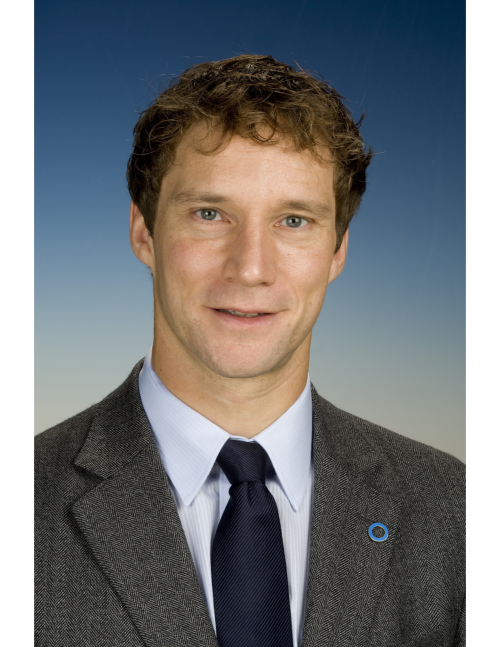
Thomas Hach, MD, is Executive Director Patient Engagement for Cardiovascular, Renal & Metabolism (CRM) at Novartis. He is leading end-to-end patient engagement strategy and operations for the broad CRM portfolio at Novartis. Thomas also held positions of Global Brand Medical Director Neuroscience, Senior Global Health Advisor and Director Healthcare Systems. His passion and expertise are in precision medicine, preventative medicine, patient centricity and partnerships. He joined Novartis from Boehringer Ingelheim, where he was Global Senior Medical Director, Therapeutic Area Metabolism. Prior to that, he was an associate principal at McKinsey & Company, serving as a leader in the pharmaceuticals and healthcare practice. Dr. Hach conducted several years of research and clinical practice in diabetes/microcirculation at Karolinska Institutet, Sweden. At the beginning of his clinical career, he worked in orthopedic surgery in Sweden and Germany. He received his medical degree from University of Mainz, Germany.
List of Finalists
- HiNouNou - The open APP platform -Ecosystem centric to Older Adults to promote Healthy Longevity WINNER
-
AI platform eco-system that is patient centric, prioritizing prevention over disease management. Creates a Digital Twin that focuses care around, predictive, preventive, personalize and participatory. “Pay-per-use” system allows affordability even in the poorest countries.
- Brain Guide
-
Online questionnaire that leads to a personalized education and resource program on Alzheimer’s disease.
- Smart Walking Stick
-
A walking stick for the visually impaired that allows user to be alerted to hazards. Now in production in Zimbabwe – finalist in the WSIS 2021 Hackathon
- Eldercate
-
Live, on line learning for in home or care home environments developed by Renaissance Academy, Europe
- EHSAN - Center of Empowerment and Elderly Care
-
The project aimed to ensure inclusive and equitable quality education and promote lifelong learning opportunities for all.
- Kwido Mementia
-
Gaming app developed by gerontologists and psychologists. Game play is analyzed for predictive analysis of cognitive impairment. Personalized for user & includes VR Vive glasses
- Singapore Government Digital Office
-
Successfully providing digital skill-building to elders and stall hawkers (who tend to be elderly). Nationwide effort to build digital competency for elderly to live a healthier/happier life. Brought in young digital ambassadors – intergenerational collaborative effort
- Recursion
-
The Recursion Operating System, an integrated, multi-faceted system for generating, analyzing and deriving insight from massive biological and chemical datasets to “industrialize” (drive more efficient and faster) drug discovery.
- Osteoporosis New Zealand
-
“Know Your Bones” On-line test that heightens awareness of this silent medical problem. Catchy, friendly approach that easily brings attention and engagement to Osteoporosis.
- Ruji Care Companion Robot
-
“Digital Twin” Personicle, focused on Mobility - Combines multi-functions in robot as well as provides companionship which reduces problems associated with loneliness. Mobility Index using sensor on the robot and AI techniques to capture metrics and relay them to predictive technology and emergency services.
- Caru Home
-
A smart sensor that can be used in both private homes and care facilities. Controlled by voice commands, its technology can establish a telephone connection, record various room parameters, analyze user behaviour, and detect deviations.